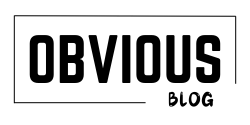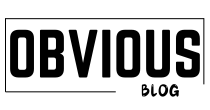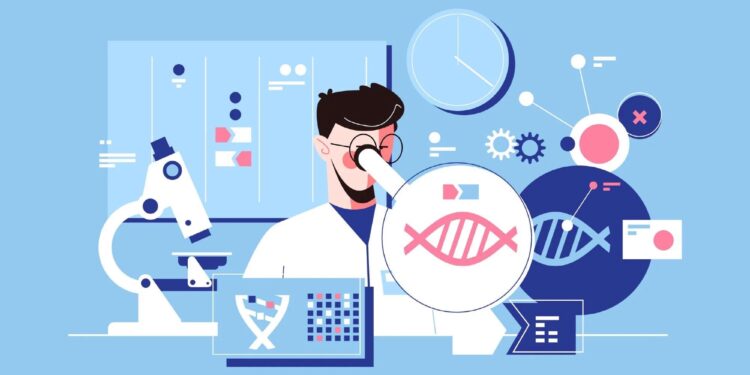Which are the careers that combine DNA technology and medicine? This is a major question that comes into your mind. You might first heard about technology and its combination with medicine. Well, the question of yours is truly exciting and everyone would love to explore it, especially if you are a student who wants to adopt a new career.
Surely, this is the question that comes into your mind when you are the one who is just at a point to adopt a new career and have a great interest in DNA and medicine. Well, the answer to the question is surely medical genetics, with a lot of jobs in a career pathway. There are some other fields as well that involve genetic counseling that you can adopt. Below, in the article, we are going to break down all the basic options for DNA technology and medicine and careers being associated with DNA technology medicine. Let’s explore!!
And in what conditions do these professions work? So this is the major question that many of the students linked . The DNA technology and medicine careers are related to a genetic concern such as autism or the prenatal diagnosis of problems just after birth that are considered birth defects.
Well, are you excited to explore it? Let’s explore what exactly medical genetics are.
What Is Medical Genetics?
Medical genetics is very necessary to understand to first answer the question of what is medical genetics in dna technology and medicines will be the fact that medical genetics is considered to be a certain branch of the genetics that mainly deals with the treatment in the diagnosis of the problem that is laying with heredity or genes. This treatment involves all the basic research and the clinical, is a must in this field.
Medical genetics is a branch of medicine that focuses on understanding how genetic variations influence health, disease, and individual traits. It explores the relationship between genes and the body’s physiological processes, looking at how inherited mutations or alterations in DNA can lead to a wide range of conditions, from common diseases like cancer and diabetes to rare genetic disorders. Medical genetics not only investigates hereditary factors passed down from parents but also studies the interaction between genetics and environmental factors.
This field integrates cutting-edge technology, such as genomic sequencing, to diagnose genetic diseases, guide personalized treatments, and offer genetic counseling to families. The insights gained through medical genetics are shaping personalized medicine, helping clinicians tailor treatments to an individual’s genetic makeup, thus improving the effectiveness of therapies while reducing adverse reactions.
You will be thinking about what the basic careers are that one can adopt while keeping oneself in the field of DNA technology and medicine. So below, we are going to discuss the career that is associated with medical genetics, especially dna technology and medicine.
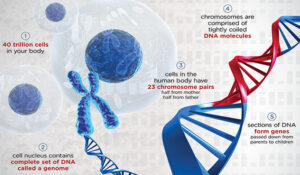
Careers In Medical Genetics
Careers in medical genetics are diverse and span a wide range of roles, all cantered around the study and application of genetics in healthcare. Geneticists may work in clinical settings, diagnosing and managing patients with genetic disorders, or in research, where they explore the genetic basis of diseases and develop new treatments. Clinical geneticists, genetic counsellors, and laboratory geneticists are key professions in this field.
Clinical geneticists specialize in diagnosing genetic conditions, while genetic counsellors provide support and guidance to patients and families regarding hereditary risks and testing options. Laboratory geneticists focus on performing and interpreting genetic tests, working closely with healthcare teams to identify mutations linked to various conditions.
Other career paths include roles in biotechnology, pharmaceutical development, academia, and public health, where professionals work on everything from gene therapy to personalized medicine. As advancements in genomics continue, the demand for experts in medical genetics is growing, opening opportunities for innovation in healthcare and disease prevention.
There are various careers that are associate with this DNA technology and medicine, specifically those in medical genetics. This career combines DNA technology with medicine.
Clinical Geneticists
Clinical genetics is one of the major branches, and it is the main interpreter and helps in interpreting the clinical examinations along with the diagnosis of certain test results. There are a few basic tests that are hard to understand, and medical genetics has a new team to explain those diagnoses of the test results. Here are the few basic tests of medical genetics, so below we have listed them down.
Carrier Testing
Career testing is one of the basic tests that is involved in medical genetics. It is a test for patients who want to know the family history of their family and want to know from which medical background their family belongs. This test mainly helps to know the family history of a certain, specific, genetic disorder that can have a huge chance of passing from birth to birth to child in the family.
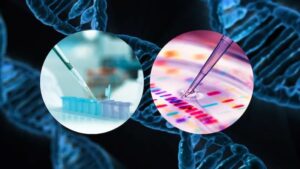
Prenatal Diagnosis
The prenatal diagnosis at another time involved medical genetics. This test is done when a mother wants to confirm the genetic diagnosis during the ultrasound to know the abnormality in the fetus. The test is common before birth and is a kind of procedure that can diagnose many of the syndromes.
Newborn Screening
The newborn screening is another test that in all the medical genetics. It has in conducting the simple multiple test after the blood sample to get the newborn disorders. The procedure is mainly done in the US in other parts of the globe to test the abnormality in the newborn.
2. Clinical Laboratory Geneticists
Another major career that involves DNA technology and medicines is clinical laboratory genetics. Clinical laboratory geneticists are known for testing the same blood and other DNA samples to understand any abnormalities in the DNA and heredity.
3. Genetic counselors
The genetic counselor and other carriers that invent DNA technology and medicine. The genetic counselors help guide the patients to the right condition and give them suggestions on Twitter and certain disorders based on the diagnosis made by the geneticist. The counselor’s job is to educate and give awareness to the patients and other people about a certain condition, the history of the inheritance, and more so that they become more aware of it.
These genetic counselors also help guide patients to the right treatment, the symptoms, and managing a certain condition.
4. Genetic Nurse
Genetic nurses and others you can consider as a DNA technology and medicine career. The genetic nurse has always been in charge of creating the data for access to the rest of the factors of a non-genetic or genetic person. The genetic nurse also helps in giving the right to a history of whether a certain diagnosis of a problem is passed on through inheritance or not. The genetic nurse is also considered a career that involves DNA technology and medicines and is known for being in charge of making detailed medical histories of patients.
Now, you have also discussed the basic careers that involve DNA technology and medicine. Below, we are going to discuss the advantages and major disadvantages of using DNA technology in medicine, so let’s have a look at it.
Advantages And Disadvantages Of Using DNA Technology And Medicine
The medical field has a vast range of search enhancements that can be used with DNA technology, and many other ways one of the major ways DNA technology can be used is through genetic engineering that involves the DNA.
This career involves the formation of DNA molecules using medicine, agriculture, and science. The use of time-end technology, however, can also help in making different vaccines. These vaccines, on the other hand, help the body fight the harmless versions of a virus, creating a defense for the body from harmful viruses.
Some people considered the creation of insulin and human growth hormone as beneficial DNA technology and medicine usage. Insulin is known to be used by people who are diabetic balancing their hormones. On the other hand, the human growth hormone is used for people who are facing the problems of short length and dwarfism.
Advantages Of Using DNA Technology And Medicine
The use of DNA technology in medicine offers numerous advantages that are revolutionizing healthcare. One of the primary benefits is the ability to provide personalized medicine, where treatments are tailored to an individual’s genetic profile, improving the efficacy and reducing side effects. DNA technology also enhances early diagnosis and prevention, enabling doctors to identify genetic predispositions to diseases such as cancer, heart disease, or diabetes, and take proactive steps to mitigate risks.
It facilitates gene therapy, which allows the correction of defective genes responsible for genetic disorders, offering potential cures for previously untreatable conditions. DNA-based diagnostic tools also make it easier to detect infections and viruses more accurately and quickly, leading to faster treatment decisions. In research, DNA technology accelerates drug discovery and development by allowing scientists to identify genetic targets for new therapies.
Additionally, it plays a vital role in reproductive medicine, aiding in preimplantation genetic diagnosis and reducing the risk of inherited disorders in offspring. These advancements, rooted in DNA technology, are transforming the way medicine is practiced, paving the way for more precise, efficient, and preventive healthcare.
There are advantages to DNA technology and medicine; these include
- The low production cost in comparison with other protein vaccines
- It is more effective than other antibodies.
- The DNA technology of the vaccine is much more efficient and has great T-cell responses.
- Is it FDA-approved and has it been used in many official areas?
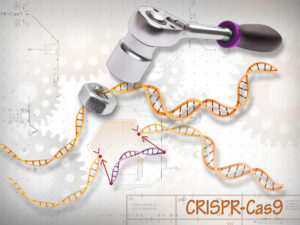
Disadvantages Of DNA Technology And Medicine To Develop Vaccines
While DNA technology has shown promise in developing vaccines, it also presents several disadvantages and challenges. One of the primary concerns is safety, as the long-term effects of DNA-based vaccines on the human genome are not fully understood, raising potential risks of unintended mutations or immune responses. There is also the issue of delivery; ensuring that the DNA reaches the correct cells and stimulates an adequate immune response remains a technical hurdle, especially since the body might not recognize the DNA as foreign.
Manufacturing DNA vaccines can be complex and costly, requiring sophisticated technology and facilities, which may limit accessibility in low-resource settings. Additionally, DNA vaccines often face stability issues, as DNA molecules can degrade quickly and require cold storage, making transportation and distribution difficult in certain regions.
Public perception and acceptance also pose a challenge, as there may be mistrust or ethical concerns related to genetic manipulation. Lastly, while DNA vaccines have shown promise in animal models, translating this success to humans has been slower, with only a few DNA vaccines approved for human use, indicating the need for more research and validation.
- It has a gene controlling cell growth that affects
- They might consider it to be a risk of tolerance to antigens.
Conclusion : DNA Technology And Medicine
Overall, we have discussed all the bases of DNA technology and medicine and concluded that with the immense technological evolution, DNA technology has gained a lot of interest. There are various careers into different fields of DNA technology or career pathways, so if you are the one who has a great interest in technology, medicine, and medicine studies, then the DNA technology and medicine are the best fields for you.
